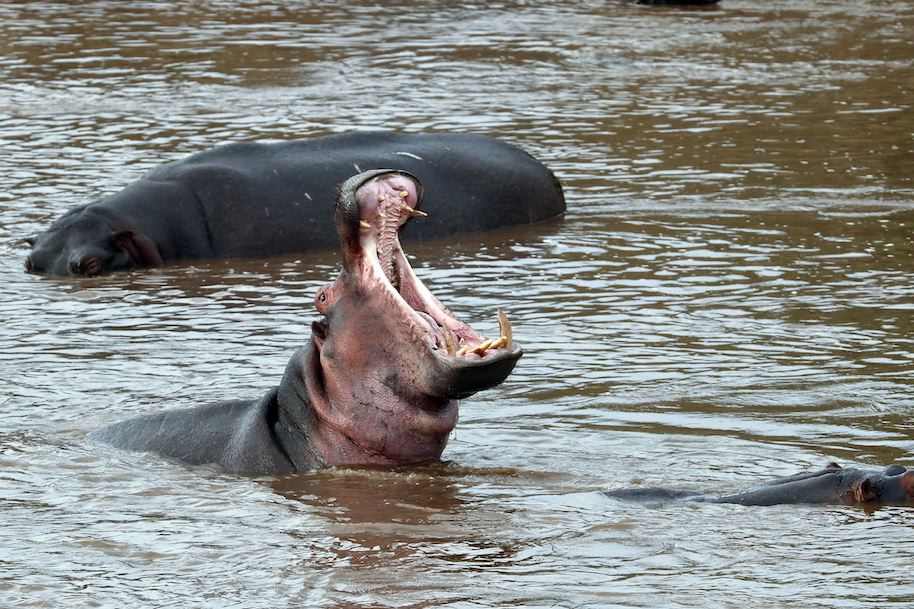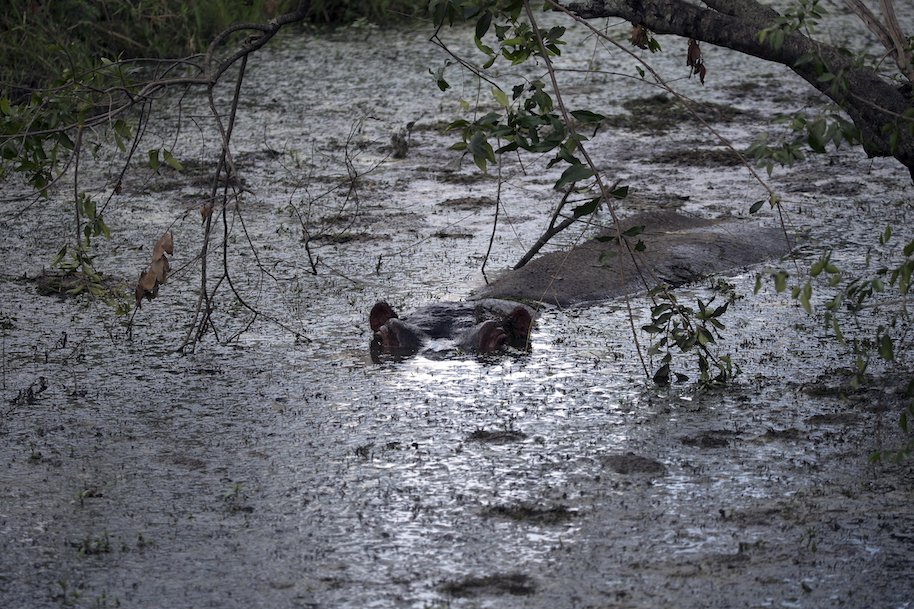Photo: Godong/UIG (Getty)
No cause for alarm (unless you have gills), but the hippos of Africa are defecating so much its killing all the fish.
Wait, scratch that. It’s a major cause for alarm according to researchers Chris Dutton and Amanda Subalusky. They recently conducted and posted a study called “Organic matter loading by hippopotami causes subsidy overload resulting in downstream hypoxia and fish kills.” In layman’s terms, that essentially translates to “Hippos wallow in their own filth, which eventually leads to the death of other marine life due to lack of oxygen.”
A more detailed breakdown of the study can be found over at The Atlantic, but the gist is pretty easy to comprehend. Once Dutton and Subalusky noticed substantial amounts of fish carcasses washing up at a bridge on the border between Kenya and Tanzania whenever the Mara River rose by a few feet, they realized something was amiss.

Sure enough, upon rolling up their sleeves and doing a deep dive into all things hippo poop-related, the feces– pieces started coming together.
Down at the bridge, you can put a net in the water for a few seconds, and the entire middle will just be coated with hippo feces.
Charming. As it turns out, when heavy rains hit, the mess of urine and fecal matters is churned up and washes downstream in a phenomenon known as “flushing flows.” All that poo in the water leads to dramatically decreased levels of oxygen in the water, with such a change in the levels becoming lethal for many of the other aquatic animals.
As you could imagine hippo intercourse is about as foul as their day-to-day lives: 6 Terrible Ways Other Species Have Sex
A second study conducted by Keenan Stears of the University of California at Santa Barbara in Tanzania’s Great Ruaha River confirms the work of Dutton and Subalusky. Stears concluded, “the results from our study are indicative of emerging issues relevant to the whole of Africa,” as maintaining the flow of water in rivers such as the Mara and Great Ruaha (especially during the dry season) is crucial. In the Mara alone, roughly 1,100 tons of dead, suffocated fish meat wash up yearly.
We can’t think of a crappier problem to have. Well, besides maybe one.






